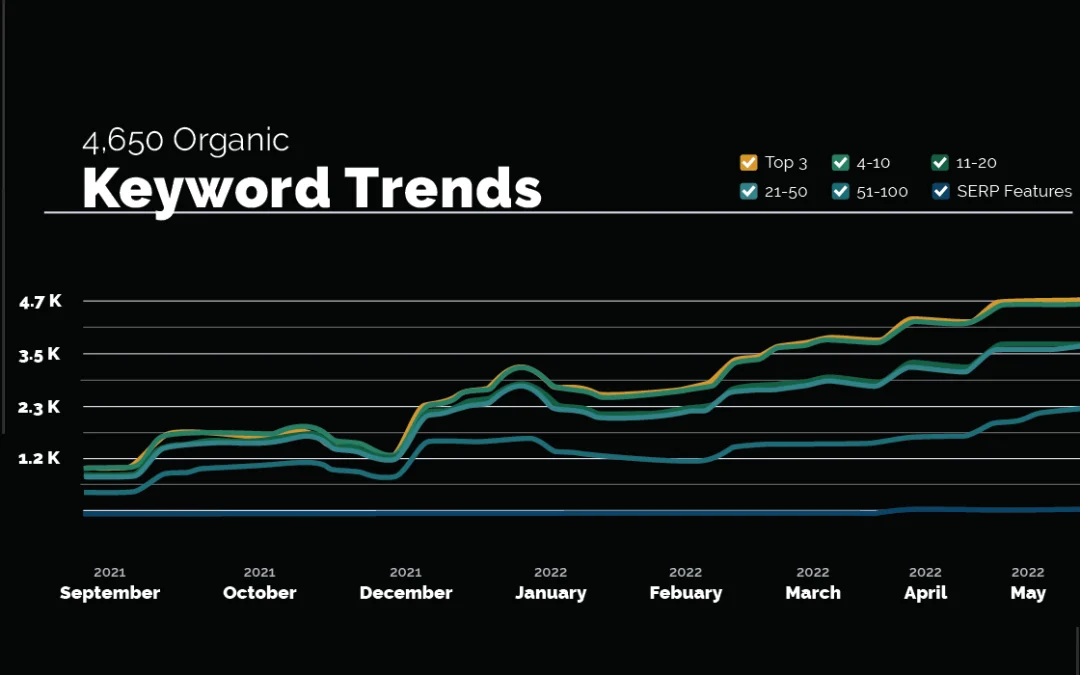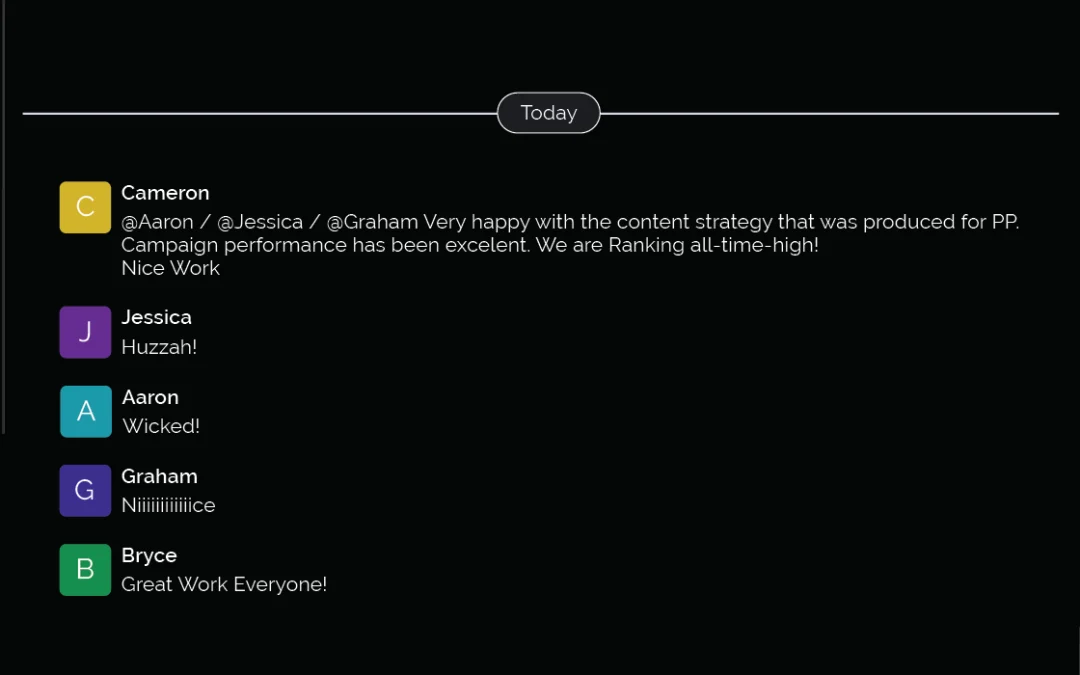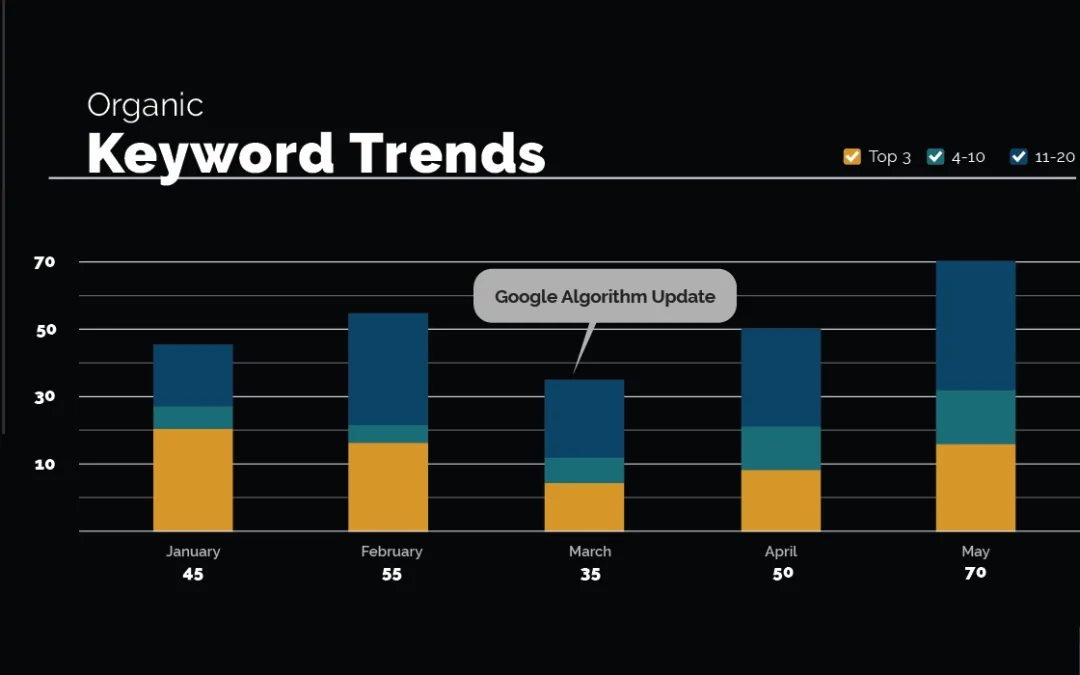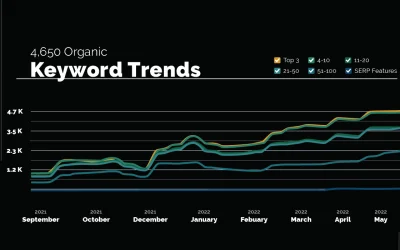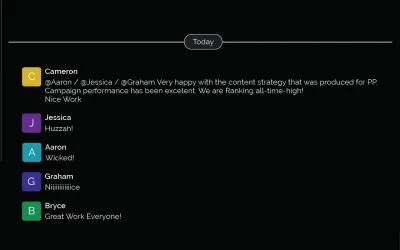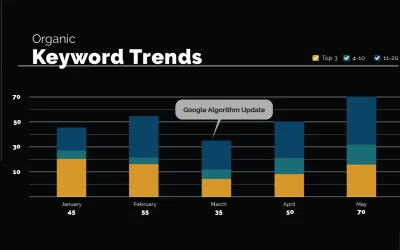Summary
- Scaling a small business requires operational efficiency, consistent branding, and data-driven marketing to drive visibility, audience growth, and revenue.
- Streamlining admin processes with tools like Teamwork, Basecamp, Mailchimp, Hootsuite, Google Calendar, or Outlook Calendar help eliminate operational bottlenecks, freeing up time for more strategic tasks.
- Outsourcing marketing tasks to specialists can accelerate growth, providing expertise in areas such as SEO, content creation, and PPC campaigns that might be lacking in-house.
- Maintaining consistency in marketing campaigns using clearly defined brand guidelines builds trust, strengthens brand recognition, and differentiates your business from competitors.
- To adapt to market changes and stay competitive, regularly conduct competitive analysis, do market research, and monitor performance metrics. Consider partnering with experienced marketers to navigate these complexities more efficiently.
Sustainable growth is a challenge for many small business owners. Scaling up means increasing your operational complexity, but you’ll have to do that while maintaining a consistent brand image. The rewards are worth the effort—better visibility, a larger audience, and increased revenue. The question is: how can you pull it all off?
Our experience tells us that nothing is more important for your growth than your marketing. Effective small business marketing strategies need to be efficient, consistent, data-driven, and skillfully implemented—when they are, they drive traffic, qualify leads, and make sales.
Fortunately, it’s not as hard to do all that as it might sound. Join below us as we cover the tools and tips you can use to create a plan like this for yourself.

Streamlining Processes & Automation
Lesson 1: larger businesses need to be more efficient. As your business expands, your marketing must grow in scale to match it. This calls for a strategic streamlining of operations to accommodate the new marketing initiatives. Operational bottlenecks can hamper progress, compromise customer experience, and slow down your growth unnecessarily.
Revising and automating certain processes is the best way to avoid these issues. Here are a few ideas we recommend using:
- Project Management Tools: Tools like Teamwork or Basecamp can help manage projects and deadlines, making sure that no task falls through the cracks.
- Email Automation: Platforms like Mailchimp or Constant Contact can handle routine tasks such as drafting, scheduling, and tracking emails. The more your mailing list grows, the more vital this becomes.
- Social Media Management: Tools like Hootsuite or Buffer can streamline your social media posting, saving time by eliminating tedious manual updates.
- Meeting Coordination: Google Calendar or Outlook Calendar can be used to synchronize team meetings and availability, reducing the odds of scheduling mishaps.
These are the power tools of your marketing kit; they exist to eliminate unnecessary busywork and make your outreach more efficient. Optimizing key processes frees up time for you to focus on the big picture—the strategic tasks that demand your creativity. Start by automating low-level tasks and gradually integrate more advanced systems as your business grows.

Working with Marketing Specialists
Lesson 2: the more your business grows, the more you’ll have to delegate. Outsourcing specific marketing tasks to external experts or agencies can propel your company’s growth in ways you might not have previously considered.
Here’s what we tell all our clients at Monochrome: marketing isn’t rocket science, but it does have rules and it takes time to master them. There’s no reason you can’t take care of your digital marketing by yourself—but if you don’t know where to start and don’t have time to learn, you’ll get a lot farther a lot faster by working with an experienced team of specialists like ours.
Agencies like ours offer industry-specific expertise that often doesn’t exist in-house for small businesses. For example:
- Search Engine Optimization (SEO): Detailed keyword research based on an up-to-the-moment understanding of search engine algorithms that enhances your website’s rankings and makes it more visible to customers.
- Content Creation: Compelling, keyword-rich content that resonates with your target audience, speaks to their pain points, and drives them towards taking specific actions.
- Data-Driven Campaigns: Managed Pay-Per-Click (PPC) campaigns that consistently drive traffic to your site and yield predictable returns on investment.
Outsourcing provides access to these specialized skills, and prevents your business from losing time and money on trial-and-error by trying to learn them from scratch. It also frees up internal resources, allowing your team to focus on core business functions. By outsourcing your marketing tasks, you’re essentially buying time, expertise, and a laser-focused approach to your marketing needs.

Maintaining Consistency in Marketing Campaigns
Lesson 3: sustainable growth requires a consistent brand image. Keeping your brand recognizable reinforces your identity and fosters trust among your consumers over the course of multiple interactions.
Brand guidelines are your best friends when it comes to keeping your marketing consistent. These should:
- Define your brand’s mission, vision, and values.
- Describe your brand’s personality.
- Specify your visual identity (including logos, color schemes, and fonts).
- Determine the tone of voice for your communications.
Consistent brand messaging strengthens brand recognition, fosters customer loyalty, and builds trust. It differentiates you from your competition and serves as a promise to your customer. Remember, consistency breeds familiarity, and familiarity breeds trust.
See Also: Building Brand Awareness: A Step-By-Step Guide

Adapting to Market Changes
Lesson 4: The more you grow, the more adaptable you need to be. Or to put it another way: more money, more problems!
The better your business is doing, the sharper your competition is going to get, so be prepared. You’ll need to be able to respond to market changes quickly and decisively if you want to stay ahead in the game. That means your marketing strategies must evolve to reflect trends in your industry, and you need to remain aware of your competitors’ strategies.
Here are a few tips to help you stay adaptable:
- Competitive Analysis: Regularly analyze your competitors’ marketing strategies and tactics. Tools like SEMrush or SpyFu can help you monitor your competitors’ SEO and PPC strategies.
- Market Research: Conduct frequent market research to keep up with changing customer demands and preferences. You can use online survey tools like SurveyMonkey or Qualtrics, or social listening tools like Brandwatch or BuzzSumo.
- Performance Metrics: Keep track of your performance metrics. Google Analytics and other similar platforms can offer insights into your website traffic, conversion rates, customer behavior, and more. These insights can help inform adjustments to your marketing tactics.
Staying agile and adaptable allows you to capitalize on new opportunities, mitigate risks, and maintain a competitive edge in your industry. However, keep in mind that learning the ins and outs of the tools listed above takes time and practice—so this is another area where working with professional marketing experts can give you an edge.
See Also: How to Measure the Success of Your Digital Marketing Campaigns
Strategic Marketing Drives Sustainable Growth
The big takeaway from all this is that you need to scale up your marketing strategy to match the growth of your small business. Streamlining your operations, partnering with industry experts, maintaining a consistent brand image, and continuously adapting to changes in your landscape will lay the foundations for a marketing strategy that sets your business up for success and evolves alongside it.
Scaling up your small business is a challenging journey—but it can also be tremendously exciting, and you don’t have to do it alone! Build a marketing plan designed to achieve your growth targets by contacting Monochrome Marketing. Our team is standing by to help you reach the next level, and we’re ready to offer our support and perspective at every step of the way.


